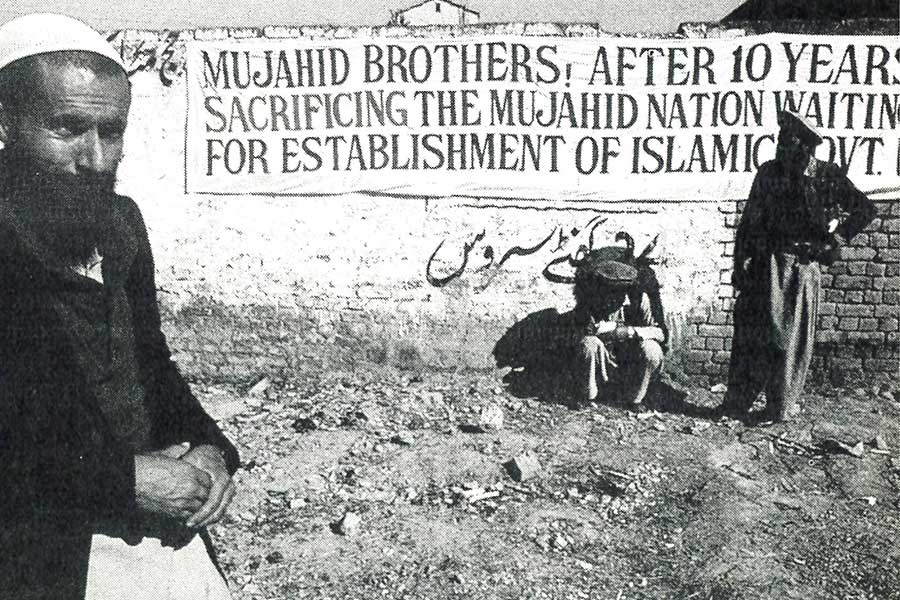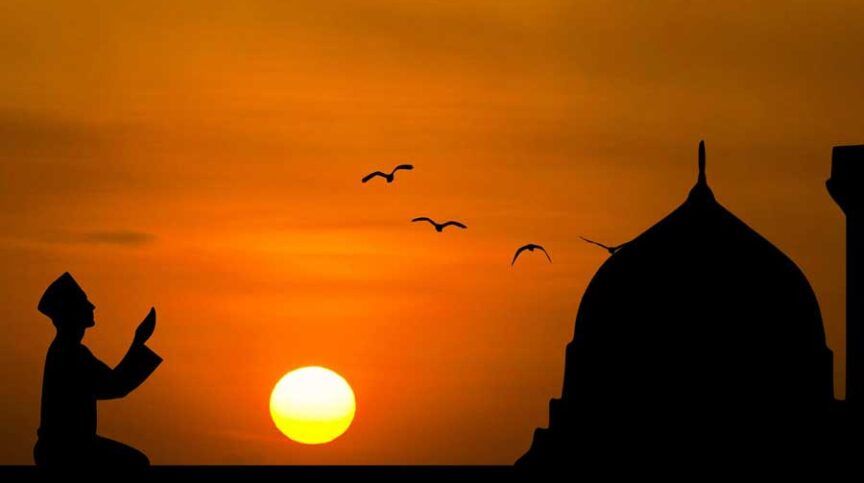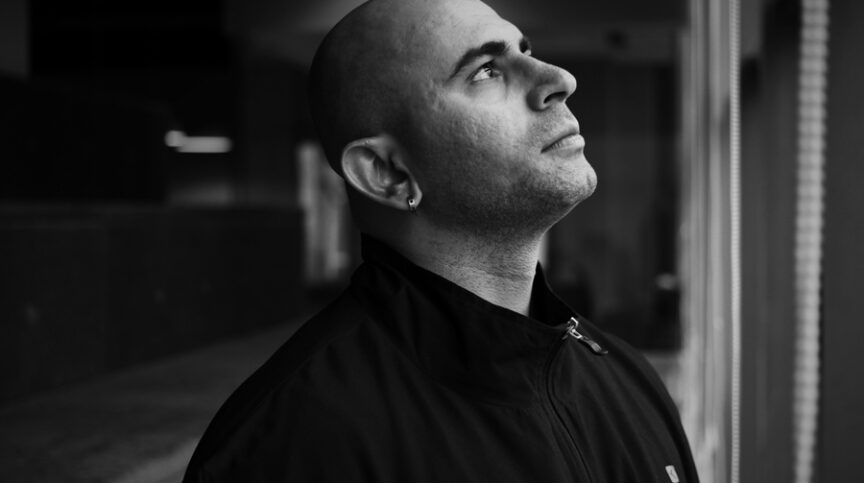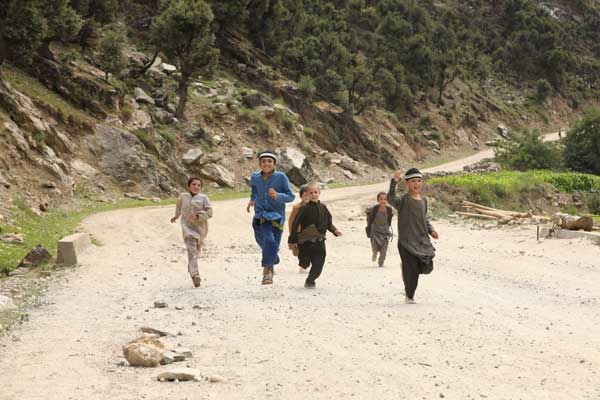Those of us who have survived the 1980s will remember it for major upheavals in the world. From the Iran-Iraq War to the Soviet invasion of Afghanistan and Israeli bombings of Lebanon, from proxy wars in Asia, Africa and Latin America, to the in famous Rushdie affair, it was indeed one of the most eventful decades ever. Although the future is hard to predict, based on emerging Soviet-American relations and developments in Eastern Europe, we may expect the ’90s to be safer, less fractious and more exciting. As Muslims, however, we not only have to be watchful of the new relationship between the world’s two superpowers, which are rightly believed to be behind most of the global troubles since the advent of the Cold War, but also take stock of our own progress, or lack of it, in the ’80s. To borrow a usage which has almost become a cliché in the realm of politics, are Muslims better off today than they were 10 years ago? The answer would be a conditional yes.
Like the Europe’s Dark Ages, which began after the sack of Rome in 476 and lasted until the end of the 10th century, Muslims have continued to be in a stage of intellectual stagnation, widespread poverty and ignorance. Our political inspiration still comes from Moscow or Washington and we have largely been defensive about our own values. Our economic and educational fate is tied to Western institutions, no matter how corruptive their influence may be. When a Muslim child grows up anywhere in the world, he only sees manifestations of Western progress, discoveries and inventions around him. Naturally, he believes what he sees. For him, the Golden Age of Islam belongs in fairy-tale books and has no relevance in today’s world of nuclear-powered ballistic missiles. and test tube babies.
The ’80s were full of drama, hope and despair for the Muslim world. In many ways it was the decade of Ayatollah Khomeini, who ousted a man who was enthroned by the American Central Intelligence Agency and symbolized corruption and exploitation, and opposed Islam. The Ayatollah also alarmed the Western world, whose economic and cultural colonialism he so vocally challenged. Had Imam Khomeini not been embroiled in an avoidable war by his detractors, the Iranian revolution would have spent its energies on building the plundered nation and strengthening Islamic forces across the globe.
The Gulf War, started as a result of the Iraqi aggression, was one of the tragic developments of the ’80s. It sapped the energy of an Islamic state and sent a secular Muslim country and its misled supporters into a nationalistic frenzy. Iran and Iraq are faced with a colossal reconstruction task in the ’90s and beyond as a result of ravages the war. Unfortunately, those in the West who may have brought Iraq into the war, are the ones to benefit during the relative peace. The sight of Kuwaiti oil tankers being escorted by the United States Navy against attack from Iranian gunboats has been permanently etched into our memories. And what a painful sight it was, seeing an adversary of Islam replaying “The Lawrence of Arabia,” this time not against the Ottoman Empire, but the Islamic Republic of Iran. Who could question the Western pride in being a savior of the Arabs? The Gulf War once again reminded us that unless we give up our petty nationalisms, the goal of Islamic unity will always be unrealizable.
Not far from the scene where Muslims shed Muslim blood, the Communists were at work in Afghanistan, converting a Muslim country into a Communist satellite. After losing a mil lion Muslims – mainly Afghan, but some of other nationalities – the mujahedeen have rid their country of the foreign invaders. The Islamists have won a battle, but the war is not yet over. In Kabul, local Communists are still entrenched in power as a result of the Soviet arms and economic support. The mujahedeen, on the other hand, are finding it hard to get a matching support from the United States. Pakistan, the lifeblood of the mujahedeen supply line until late 1988, has scaled back its commitment under the government of Prime Minister Benazir Bhutto. The end of the honeymoon between the United States and mujahedeen is not surprising; it was an unnatural and self-contradictory alliance to begin with. But what is worrisome for the mujahedeen is the possibility of Moscow and Washington conspiring to keep Afghanistan from becoming an Islamic state. The lessons that the mujahedeen have learned in the ’80s should help them chart better plans for the ’90s. The Afghan Interim Government, based in Peshawar, Pakistan, has to bring an end to the infighting if it is to succeed. In Afghanis tan, not only more than a million Muslims lost their lives, but many also destroyed their minds, due to the more than a decade of Communist indoctrination.
The ’80s also saw a new turn in the 41-year old Palestinian struggle to regain nationhood. Begun on December 8, 1987, the intifada, or uprising, has now entered its third year and shows no sign of letting up. Interestingly, the intifada has come not from Palestinians living in areas occupied in 1948, but young men in Gaza and the West Bank, occupied by Israel in 1967. This post-’67 generation of Palestinians has seen nothing except a ruthless occupier, misery, squalor, despondency and death. Although carried out mainly by several factions of PLO, the intifada also depends heavily on the support of lkhwan al-Muslemon and the Islamic Jihad, which are specially strong in Gaza. Hamas, the military arm of Ikhwan is a force that cannot be ignored by the leftist PLO.
In unseen ways, an Islamic movement is also gaining ground in Israel proper. For obvious reasons, this movement has no direct links with intifada, but its goals are no different. Like the Ikhwan, it not only wants an Islamic Palestine in Gaza and the West Bank but on the entire territory Palestinians were expelled from. In the event of a weakening of Israel and an escalation of the struggle, this movement can be extremely helpful in providing intelligence information and working from within Israeli ranks. Five Muslim mayors from Israel came to the United States last month to sensitize American lawmakers and the Muslim community about the situation at home. These people were not just any Muslim mayor of any Israeli municipalities, but Islamists who came to power for the first time since Israel was created. They are unwilling to move to Gaza and the West Bank even if a Palestinian state is founded there, arguing that the whole of Palestine is theirs and they should not leave their ancestral land to the Israelis. So in reality Israelis have to contend with two kinds of in-tifada, one vocal and outside, and the other silent, but at home. While the one on the territory may end in the ’90s, the one within Israel could continue to work into the next century.
Elsewhere in the Middle East, Islamic movements made important gains during the last decade. In Jordan, Ikhwan al-Muslemoon, or Muslim Brotherhood, won nearly one-third of the 80 parliamentary seats in that country’s first elections in more than two decades. Although political parties are still banned in Jordan, the Ikhwan was allowed to function, because it is registered as a charity. Ikhwan’s gains in Jordan came only few years after thousands of their members were massacred in Syria by Hafez Al-Assad’s government. In Egypt, Islamists have an important presence and during the last decade they increased their pressure on Cairo’s secular and pro-West government to introduce Islam. In Lebanon, where peace has remained elusive, Muslims were able to have the country’s charter revised to give Muslims power in proportion to their majority population. They have a way to go, however.
One of the most unhappy events of the ’80s was the publication of “The Satanic Verses.” This sacrilegious and highly profane book, written by a former Muslim named Salman Rushdie, deeply offended Muslims. The book was not only anti-Muslim and vulgar, it also seemed to be part of a larger smear campaign against Islam. Muslim anger erupted in the streets of Pakistan, Bangladesh, the United States and Britain, to name a few, and demanded that the book be banned and copies already in the market recalled. Scores of Muslims lost their lives in protests in several countries. Some nations banned it, others showed a double standard and defended it in the name of freedom of speech.
Here at home, headquarters of Penguin’s American subsidiary, Viking, Muslims tried to get American ears for their outrage over the book. The media continued to treat their efforts as bad copy, until the late Ayatollah thundered from Qom and demanded the head of the blasphemer. The edict in Iran proved to be a double-edged sword: while on the one hand it sent Mr. Rushdie into hiding and his media supporters vying for a Muslim statement, on the other it made many Muslims uneasy with a summary death sentence. Many disagreed with Imam Khomeini, others argued that a death sentence against Mr. Rushdie, an apostate and a traitor, could be executed only by an Islamic state after due process, while yet others agreed.
In the wake of the controversy, Muslims have learned a lot about Western attitude and how an anti-Islamic publication should be countered. So in this respect, the ’80s were singularly important.
The Rushdie affair also showed the weakness and divisions within the Organizations of Islamic Conference (OIC). Although united in the name of Islam, many OIC members preferred expediency over the call of duty when time for action against blasphemy arrived. This and other lame-duck examples of OIC have made it ineffective and arguably worthless.
The ’80s witnessed a tragic exodus of Bulgarians of Turkish origin. More than 300,000 Bulgarian Muslims crossed into Turkey to escape religious persecution in their country. Ankara later closed its borders saying the move would make a negotiated settlement of the problem possible. Now that Bulgaria is in the throes of an ideological change, one might hope that its society would be more tolerant of Muslims.
West of Bulgaria, a few Muslim schoolgirls took France by storm by refusing to remove their headscarves on religious grounds. France is home to 3 million (mostly Arab) Muslims from North Africa, a majority of whom have remained close to Islam. While the school authorities made concessions to the religious requisites of those enviable Muslim girls, France’s right-wing National Front has waged an anti-Arab campaign.
In Africa, Sudan made significant progress towards enforcement of Islamic laws. The new civilian-military government has between four and six Ikhwans or pro-Ikhwan elements in its ranks, and has rebuked Christian rebels who demanded that Sudan refrain from making Islam the law of the land. As the 20th century comes to a close, it is gratifying to note that Islam has outperformed well-funded Christian missions in Africa who had claimed that they will make the continent a sea of Christianity within the century.
Here at home, Muslims grew in number and political and social clout in the ’80s. An estimated 6 million and growing, the North American Muslim community took important steps towards solving some pressing problems. At least two interest-free institutions, Baitul Maal, in New Jersey and California-based Muslim Savings and Investments Inc., were established. Small groups in different areas also pooled their resources to meet their financial needs without the scourge of interest, or riba. These measures are by no means enough to serve all Muslims, but their success would likely attract wealthy Muslim entrepreneurs to invest in Islamic banking on a large scale. Progress has also been made in the area of Islamic propagation and activism. Hundreds of Muslim organizations have sprung up continent-wide in the last decade to deal with urgent problems and get the community to participate in the political process of their respective countries. The native North American community has also grown and matured. It has set up Islamic schools and centers and is now an important force on the continent. While redoubled efforts are needed in all areas, particular emphasis must be given to creating a strong interaction between native Muslims and the immigrant Muslim community. Discontent over a lack of coordination between the two communities was often expressed in the ’80s, and the problem must be corrected before it comes to a boil. Another important problem North American Muslims have to tackle is a growing Qadiani activism. Qadianis, also known as Ahmadis, have introduced themselves as Muslim, despite consensus in the Muslim world to the contrary. They have also curried favor with some un-suspecting non-Muslims and media men over their alleged persecution in Pakistan. These people have to be exposed for what they are.
In the Caribbean, Islam continued to make inroads. The struggle and triumphs of many devoted Muslims in the region are detailed in an article appearing in this issue.
The ’80s became a turning point in superpower relations, and created a need for Muslim countries to reflect on their alliances and be watchful for emerging adversaries. The Cold War, long a driving force for East and West, was replaced by an American-Soviet cooperation that the world has not seen since the end of the World War II. Soviet Glasnost and Prestrolka created a jolting effect on subservient countries of Eastern Europe, where disgruntled people thronged the streets to demand political freedom and an end to Communist rule. From Poland to East Germany, from Czechoslovakia to Hungary and Bulgaria, Soviet satellites went into a freedom frenzy. Many in Europe have since debated the two Germanys’ open desire for reunification, and what it would mean for world peace. As Eastern Europe became infused with democratic ideas, the Western Europe moved increasingly towards lowering trade and other barriers and consolidating itself as a formidable economic and political block. The unfolding drama of the two Europes will continue in the ’90s.
What do changes in Europe and East-West relations mean for the Muslim world? Some, yesterday’s enemies — the United States and the Soviet Union – become today’s friends, and as Europe tries to regain its pre-World War II dominance in world affairs, Muslims will have to rely on themselves. Their continued dependence on foreign arms, technology, education, training and finance will push them in a deeper morass and keep the Ummah from ever becoming proud, independent and self-sufficient. While the ’80s were exceptionally eventful for Muslims of the world, who now number more than a billion, there was no But faith in Islam’s indestructibility is not enough; Muslims have to strengthen their ties among themselves and rise above the regional political alliances such as the Gulf Cooperation Council. As yesterday’s enemies — the United States and the Soviet Union — become today’s friends, and as Europe tries to regain its pre-World War II dominance in world affairs, Muslims will have to rely on themselves. Their continued dependence on foreign arms, technology, education, training and finance will push them in a deeper morass and keep the Umniah from ever becoming proud, independent and self-sufficient. While the ’80s were exceptionally eventful for Muslims of the world, who now number more than a billion, there was no significant progress in addressing these serious issues. While the world is gearing up to adjust itself to shifting alliances and ideologies, Muslims have watched and remained immobilized. Are Muslims doing this to let the chips fall where they may, or is it because they think no matter what they do, the world leadership belongs to others.
Muslims in the ’90s and beyond will no doubt increase in number, through births and con-versions, but will they also increase their overall consciousness and throw the yoke of economic and political subservience? The answer is that they better. Muslim progress in the future is inextricably tied to a feeling of goodness, pride and confidence about themselves, and a yearning to join forces and seek political, social and economic solutions in the Islamic way of life. As Communism has failed, so will Capitalism; it is only a matter of time. A system based on economic tyranny, exploitation, greed and corruption may last awhile, but cannot endure. But while these so-called panaceas of human ailments will be discovered and discarded, our task will be to put Islam on its pedestal and show the world that it works, even today.






